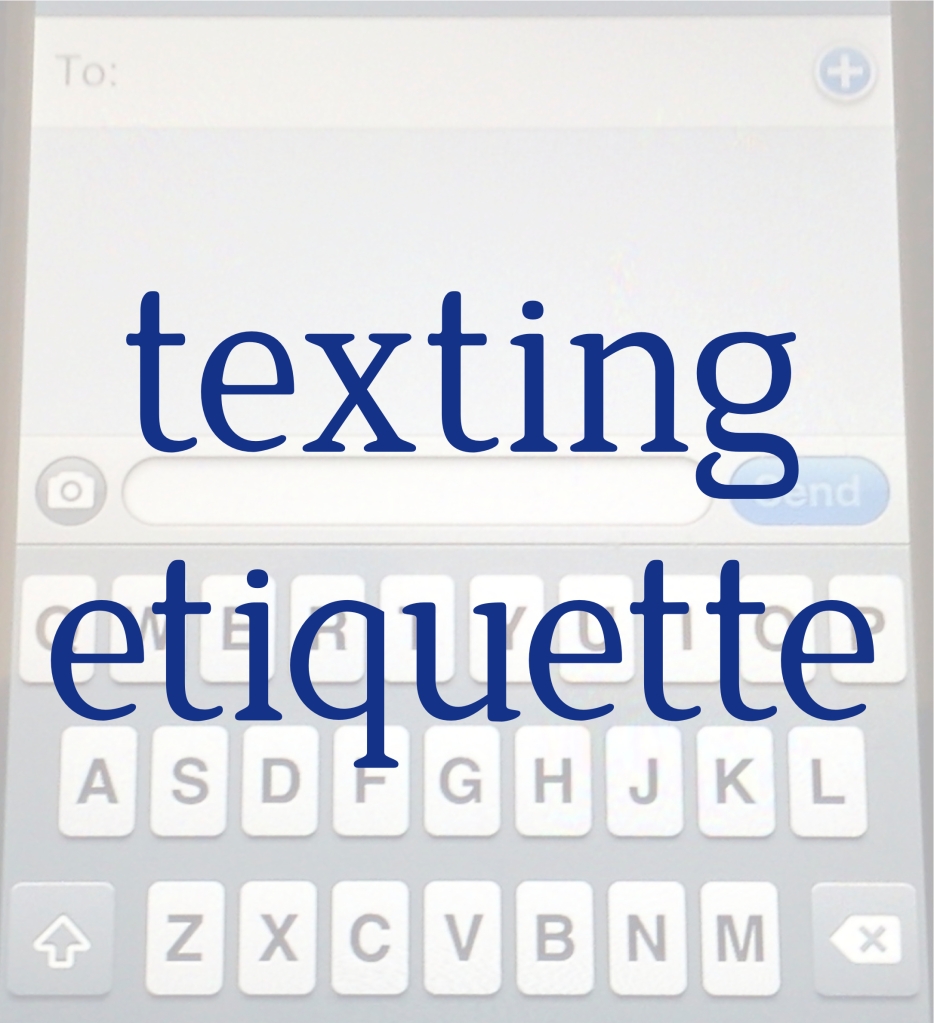
We don’t often think of etiquette and manners in reference to text messages, but we should. Although there are no set rules for texting, there are some helpful guidelines.
It is not always possible to respond right away, reply as soon as you can.
Understand that when you send a text message the recipient may not see it right away or they may not be in a position to respond at that time. Their phone may be turned off or they may be otherwise engaged. Don’t expect an immediate response.
Don’t use text messaging to inform someone of bad or sad news. There is a place for text messages, but serious and sensitive matters warrant a phone call or personal visit.
Understand that not everyone has unlimited texting as part of their service plan.
Keep your message brief. Long drawn-out messages are exhausting for the sender and the receiver. If you have a lot to say, make a phone call instead.
Be mindful of your audience, you might text in a casual manner with family and friends but in a more professional way with co-workers, clients, and business associates. Be sure your text is appropriate for the recipient.
Be careful when choosing a contact from your address book; a slip of the finger could send the text to the wrong person.
If you are texting someone who does not have your number, identify yourself at the start of the message.
Avoid group texting, a survey done by Viber showed that 1 in 6 Americans mutes every group chat, and 1 in 4 will mute them later if the messages become non-stop. Most people find group chats to be too much. Reading through all of the messages can be a chore and who wants to deal with their phone blowing up with a barrage of messages?
Don’t respond to unsolicited spam or suspicious text messages.
Don’t text at the movies, a play, concert, or other public venue where the screen light may bother others.
Don’t text anything confidential or private. Text messages may be seen by someone other than the addressee, and phones are lost and stolen all the time. Deliver that type of information in person.
Think of texting as a conversation, if you would respond in the conversation, then respond in the text. If the text does not warrant a lengthy response a short thank you or OK to let the recipient know you read the text is perfectly acceptable.
Mind your manners when texting. If you are engaged in a conversation with someone don’t ignore them to text someone else, the same is true for public settings like the checkout line in the grocery store. It is rude to ignore the person in front of you. Meals, movies, performances, and conversations are all inappropriate times to pull out your phone. Wait to respond until the conversation or activity is over.
Don’t text and drive. This is just common sense and the law in most states. If you message someone who replies that they are driving, stop texting and don’t encourage further conversation.
Re-read your text before sending.
Don’t bombard the recipient with attachments and photos, it is perfectly fine to send a photo or attachment if it is something the recipient should see but 10 pictures of your dog or kids may be too much.
Check spelling and grammar, not everyone is up on the latest texting abbreviations, and spelling mistakes just look bad.
Don’t use all caps, it is considered yelling.
Mind the time, don’t text too early or too late.